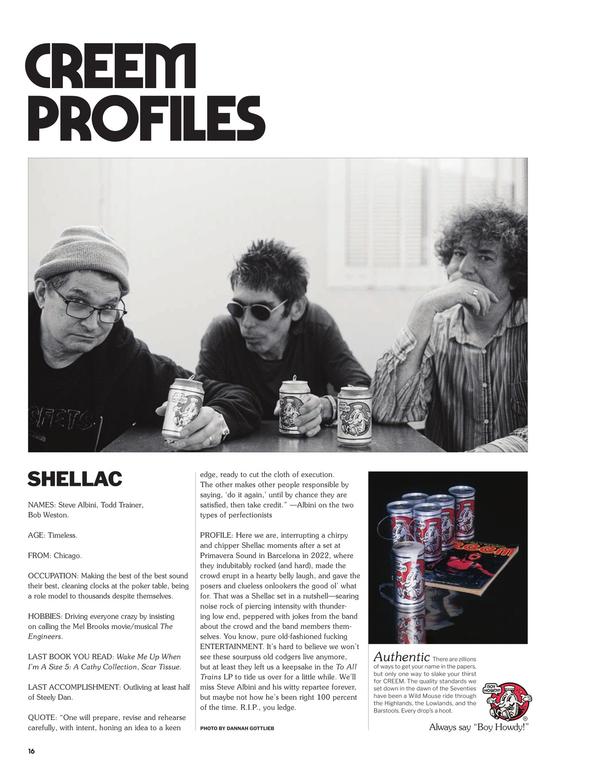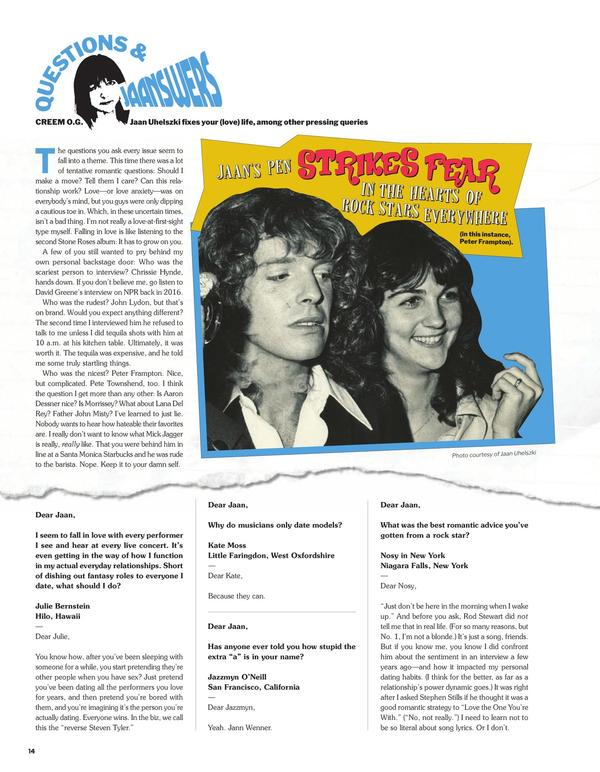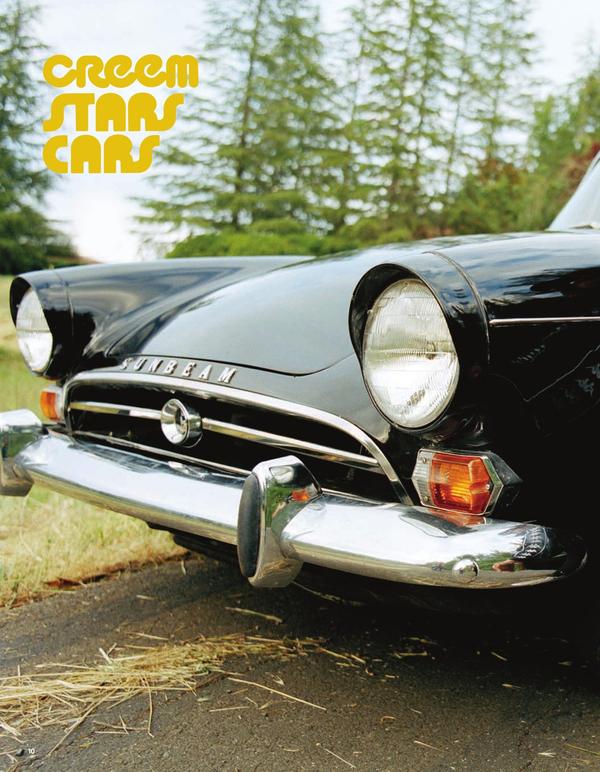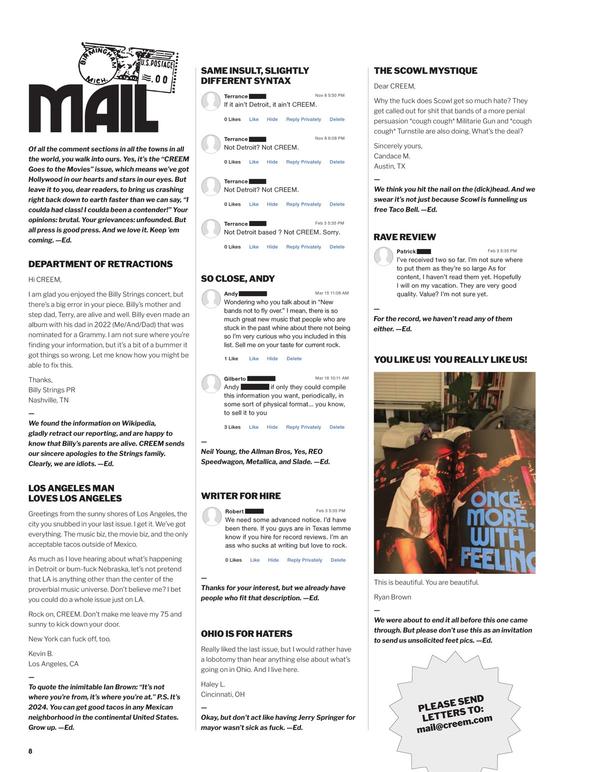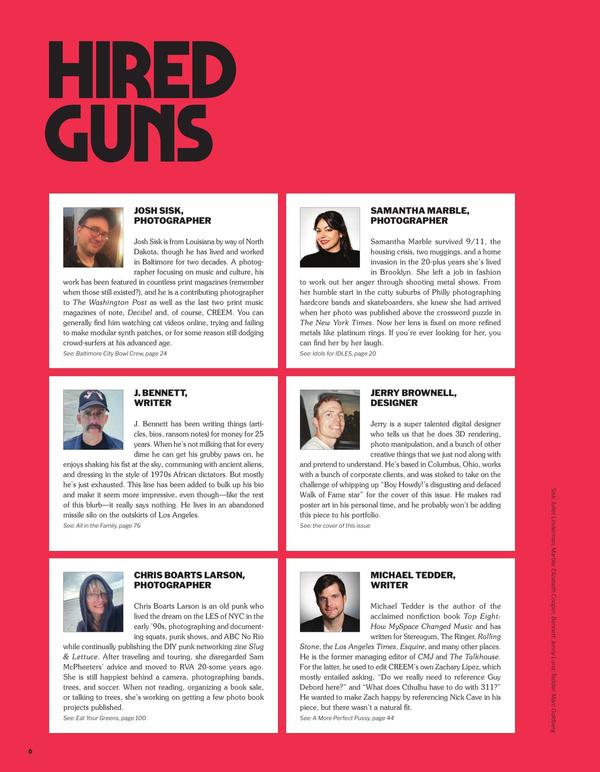OPENER
My earliest memories of movies are those of awe, terror, and a potent mix of disgust and abstract horniness that sustained me well into adulthood.
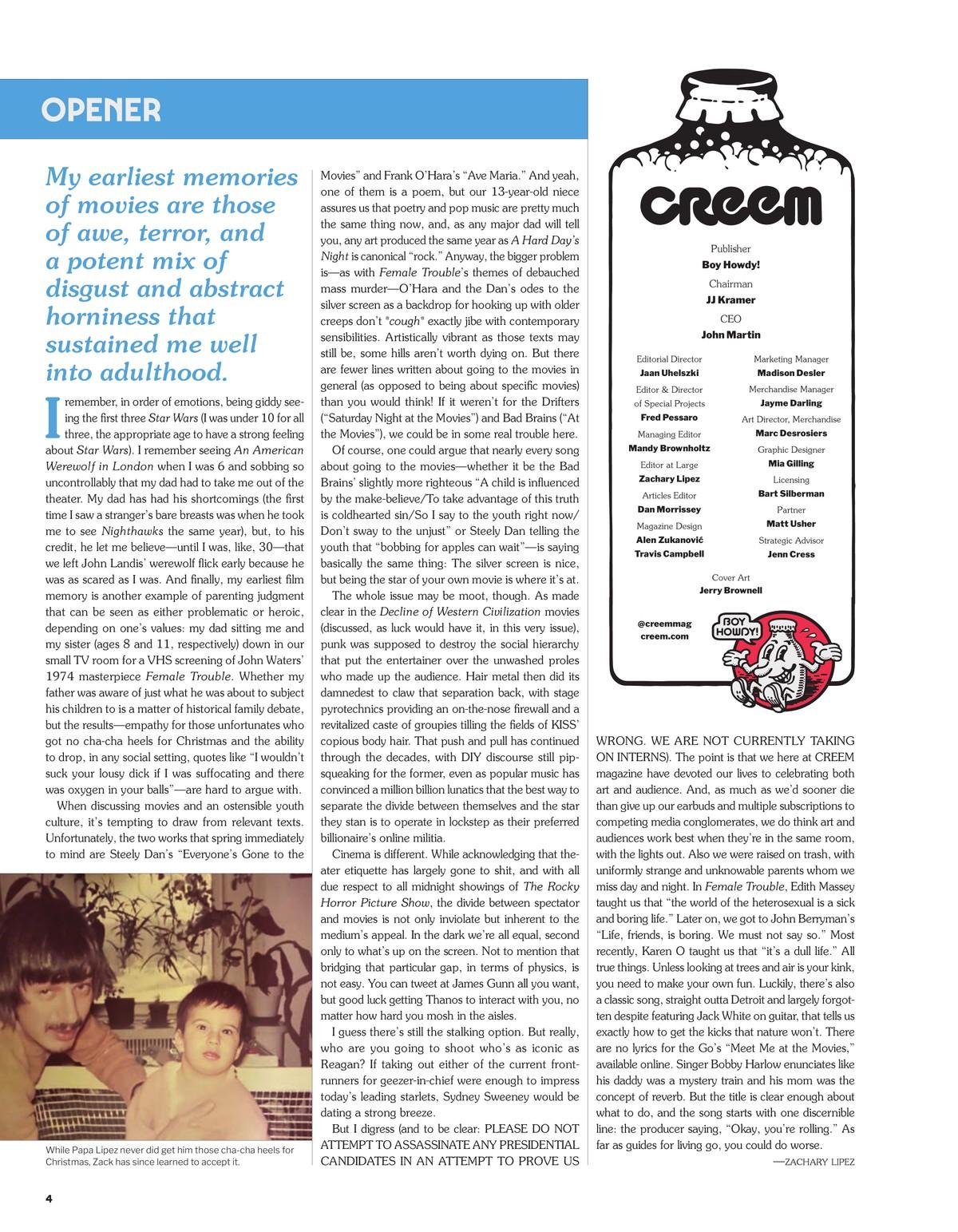

I remember, in order of emotions, being giddy seeing the first three Star Wars (I was under 10 for all three, the appropriate age to have a strong feeling about Star Wars). I remember seeing An American Werewolf in London when I was 6 and sobbing so uncontrollably that my dad had to take me out of the theater. My dad has had his shortcomings (the first time I saw a stranger’s bare breasts was when he took me to see Nighthawks the same year), but, to his credit, he let me believe—until I was, like, 30—that we left John Landis’ werewolf flick early because he was as scared as I was. And finally, my earliest film memory is another example of parenting judgment that can be seen as either problematic or heroic, depending on one’s values: my dad sitting me and my sister (ages 8 and 11, respectively) down in our small TV room for a VHS screening of John Waters’ 1974 masterpiece Female Trouble. Whether my father was aware of just what he was about to subject his children to is a matter of historical family debate, but the results—empathy for those unfortunates who got no cha-cha heels for Christmas and the ability to drop, in any social setting, quotes like “I wouldn’t suck your lousy dick if I was suffocating and there was oxygen in your balls’’—are hard to argue with.
When discussing movies and an ostensible youth culture, it’s tempting to draw from relevant texts. Unfortunately, the two works that spring immediately to mind are Steely Dan’s “Everyone’s Gone to the Movies” and Frank O’Hara’s “Ave Maria.” And yeah, one of them is a poem, but our 13-year-old niece assures us that poetry and pop music are pretty much the same thing now, and, as any major dad will tell you, any art produced the same year as A Hard Day’s Night is canonical “rock.” Anyway, the bigger problem is—as with Female Trouble’s themes of debauched mass murder—O’Hara and the Dan’s odes to the silver screen as a backdrop for hooking up with older creeps don’t *cough* exactly jibe with contemporary sensibilities. Artistically vibrant as those texts may still be, some hills aren’t worth dying on. But there are fewer lines written about going to the movies in general (as opposed to being about specific movies) than you would think! If it weren’t for the Drifters (“Saturday Night at the Movies”) and Bad Brains (“At the Movies”), we could be in some real trouble here.


